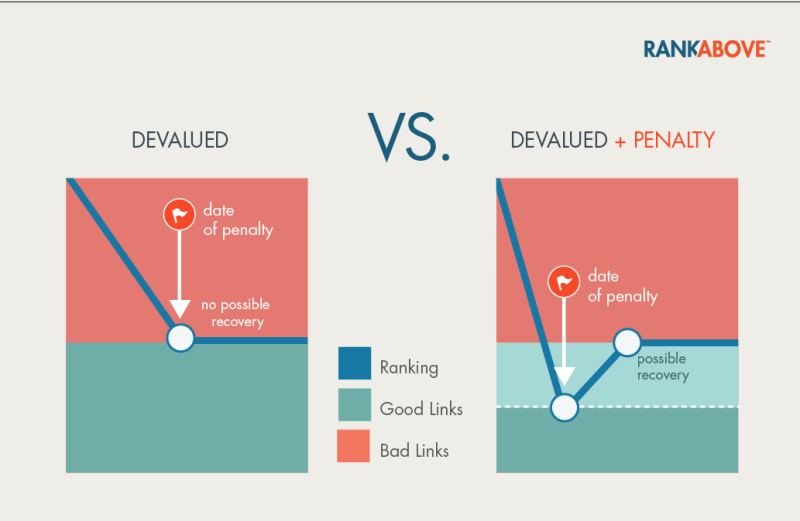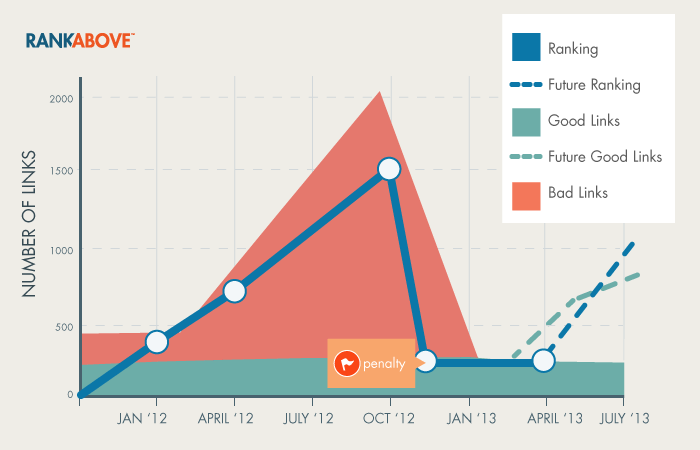Is This The End Of The Penguin & Panda Era Shakeups And Recoveries?
For many webmasters, major algorithm updates like Panda and Penguin turned their world upside down, but columnist Aaron Friedman believes the days of big upsets may well be over.
It’s been several weeks since Penguin 3.0 surfaced, and the overall consensus seems to be…. meh. Not much impact overall. In fact, Google reported less than 1% change across their search results.
We have seen similar results across sites claiming to have been penalized. At RankAbove, we work with a tremendous amount of data. Some of these data are client data and some are data we have been tracking to glean insights.
Across almost 25,000 tracked keywords for sites impacted by Penguin, we saw little change.

Ranking delta after Penguin 3.0
What does this tell us? Basically, that not a whole lot has changed since the last time the update happened and devastated sites across the web.
There were such high hopes that a Penguin refresh would save the day for many small online businesses, but the results say otherwise. It seems we will not see the same kind of drastic changes we saw in the past. We have finally arrived at the leveling off point and this seems to be the new normal.
But what about all the online businesses who were hoping for their royal pardon? Why haven’t they recovered?
How Penguin & Panda Were Believed To Work
When Penguin and Panda first arrived on the scene, they shook up the search engine results pages (SERPs) in a necessary way. There was so much trash and spam out there. And there still is.
The purpose of these algorithm updates was to fix these spam problems. By putting into place systems that allowed them to devalue those who had been playing an unfair game, Google caused a major shakeup, with sites falling out of positions they “deserved” through hard work.
This was, perhaps, the biggest fallacy of them all. These sites never did “deserve” those results. They were artificially placed there because of their shady practices.
Therefore, when sites talk about recovering, they should never anticipate getting back to that artificial point. For them, their current post-Penguin-update position is their rightful place in the SERPs.
And then, of course, there is all the speculation on what happens when a site is hit with Penguin. Do they lose the value of all their bad links and then an additional penalty? Or do they just drop to their rightful place in the SERPs?
After this most recent update, it seems to me that the penalty sent these sites to their rightful, non-inflated place in the SERPs, which is assuming there is no additional Penguin penalty.
Regardless, penalty or no penalty, the difference between the two is so insignificant to the initial drop in rankings the site incurred that it likely makes little difference.
I speculate that the actual “Penguin penalty” really makes little difference for a couple of reasons:
- The data seem to imply that there were not vast changes across the SERPs
- Most sites hit with Penguin cleaned up their link profiles, and yet did not see significant changes
Also, another point to consider on why we are seeing so little change in SERPs could also be attributed to the age and freshness of links. Webmasters which consistently built spam links pre 2012, likely spent little to no time earning new quality links.
Post 2012, they spent the majority of their time cleaning up that spam, and also not earning new quality links. Which means, for the past two years, their backlink authority on any given topic has waned. Simply put, a link you received in 2011 is not as valuable as that same link you receive in 2014.
The Days Of Fuzzy, Black & White Animals Ruining Our Lives Is Over
Everything seems to be pointing to sites ending up where they rightfully belong in the SERPs. The Pandas and Penguins have been among us for a few years now. We have had time to get to know them, and it should be clear to everyone that the old ways don’t work anymore.
The old linking tactics and the old junk content — they’re not part of a valuable strategy and won’t bring the results you are looking for.
Link building is nothing more than marketing. Penguin and Panda have forced us to realize that and work the way Google intended their engine to deal with links in the first place.
Create good, high quality content. Earn relevant and solid links because of the incredible content you build. Rinse and repeat to keep things fresh and make sure there is a constant supply of quality, useful, and valuable content being generated.
And for all that is holy, stop worrying about the damn algorithm updates. Those days are over (unless you’re a spammer).
This isn’t just the new normal, this is the original reality, and the way it was always supposed to be. So stop lamenting that you didn’t “recover,” and go out and do something positive with your site.
Contributing authors are invited to create content for Search Engine Land and are chosen for their expertise and contribution to the search community. Our contributors work under the oversight of the editorial staff and contributions are checked for quality and relevance to our readers. The opinions they express are their own.
Related stories


